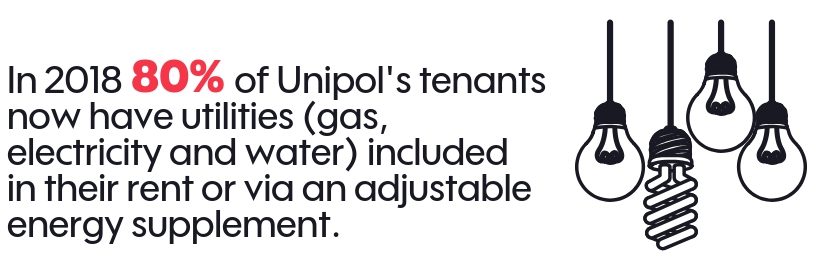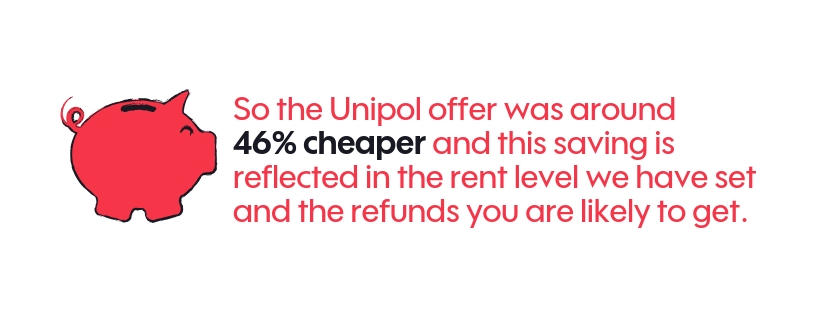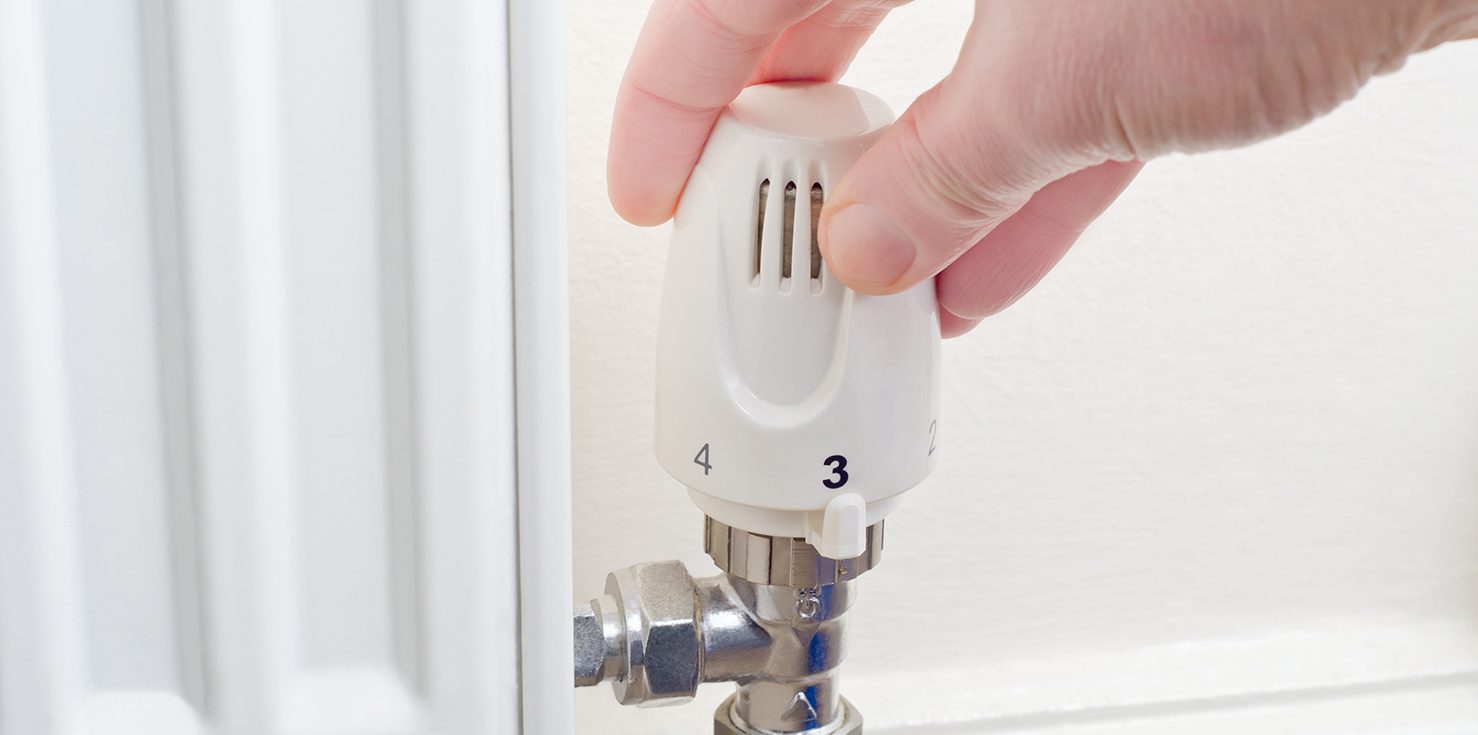
66% of those remaining would like an inclusive rent, so over the next two years we are continuing the roll out.
All of our shared student housing includes water charges and the 80% that are inclusive of energy this is done either by a fully inclusive rent (the utilities are simply included in your rent) or via a supplement, normally £6.00 a week which is added to your rent but shown separately.
We have set a sum of money for energy that should be enough to keep you warm and comfortable, even in the coldest months, and we have based this on responsible use.
Inclusive Rents
In 2018-19 where tenants on all-inclusive rents make savings we share the amount saved with you: the savings are split 50:50 between the tenants and Unipol. In 2017-18 the average tenant on an all-inclusive rent got a refund of £47.14 back at the end of the year – so well worth using energy responsibly whilst still keeping warm.
Why are Unipol keeping 50%?
Because we use this to reinvest in the properties to reduce your energy use further and, regrettably, some of it goes to cross subsidise those students who are using more energy than they should. This year we are concentrating on lower energy lighting, so you may see some improvements in your house or flat during the year.
Energy Supplements
If you are living at Mill Street or Carlton Hill in 2018-19 then you pay an energy supplement (£6.00 per week) with your rent that is adjusted upwards or downwards depending on how much you use.
The average refund in 2017-18 to students at Mill Street was £71.00 and at Carlton Hill it was £78.00 – so with a few exceptions everyone got money back for being careful. A handful of tenants in one flat used £875 more than their supplement – and that came from their deposit at the end of the year. They had been told to reduce their irresponsible energy use, but didn’t and ended up paying for it.

Why so low?
Unipol has invested a lot in energy saving measures:
- Most boilers are highly efficient condenser or combi boilers with instant hot water (so no tank of water to heat)
- We have insulated the coldest walls of our houses
- We use energy efficient appliances
- All of our houses and flats are doubled glazed
- We have a lot of low energy lighting (and we are changing more to low energy each month)
- We buy direct from suppliers, so it is cheaper (in almost all cases) for Unipol to buy energy than it would be for a tenant.
How do you know how much energy you are using?
To help you know how much energy you are using we now read your meters monthly and give you a statement every two months with a graph showing the amount of spend expected vs the actual spend. The graph also compares your usage this year to last year.
In cold months you use more energy than warmer months so it is necessary to take into account seasonal usage in making comparisons.
How does Unipol’s utility costs compare to companies who offer to pay your utilities for a fixed price?
We did a lot of work this year to compare the Unipol energy offer with commercial companies who offer a service to pay your utilities such as Glide, Split the Bills and Huddle and, based on a typical five bed shared house, this is what we found:
| Glide | Split the Bills | Huddle | Average Unipol | |||||
| kWhs | SC | kWhs | SC | kWhs | SC | kWhs | SC | |
| Electricity | 20.01p | 77.1p | 20.0p | 0p | 19.89p | 66.96p | 11.7p | 46p |
| Gas | 5.0p | 10.50p | 5.0p | 0p | 5.0p | 38.0p | 2.6p | 47p |
| Cancellation | £0 with 30 days’ notice | 50% of remaining management fee | £0 with 30 days’ notice | None | ||||
| Set Up Fee | None | £14.99 each tenant | None | None | ||||
| Admin Fee | None | £1.50 per week | None | None | ||||
| Deposit | 1 Month’s Fee per person | None | None | None | ||||
| Ave energy charge for 5 bed house for 52 weeks* | £2,077 | £2,260 (**changed since Jan but new set up fee, so total is the same) | £2,174 (***tied into 52 week contract and only released if replacement found) | £1,434 | ||||
* energy charge is based on average usage in 5 bed Unipol properties for 2017/2018
How you can save energy
Smaller houses use more energy per person than larger houses because the cost of heating the common part and standing charges are split between fewer people – so people in smaller houses and flats need to be more careful. If someone leaves the house or flat, then this has the same effect and costs for those staying increase – extra care is needed.

The Golden Rules are:
- Understand how your heating system works (we can help if you need things explaining).
- Keep comfortable and warm, even on the coldest days.
- Never use secondary heating appliances (particularly fan heaters) as they are inefficient and expensive. Your main house heating should never leave you cold; if it does there is something wrong, so contact us straight away and we will help.
- Use energy responsibly – turn heating down rather than open windows to let cold air in and turn off your radiator if you are going away for the weekend or out of term.
- Keep an eye on your energy statements to see how you are doing.
